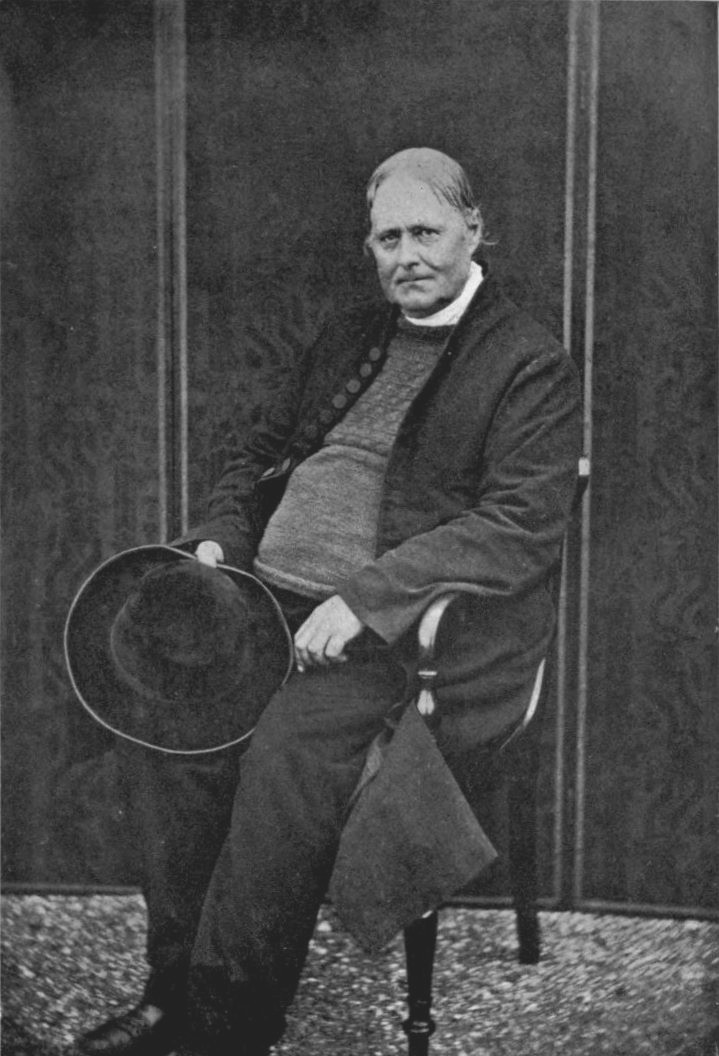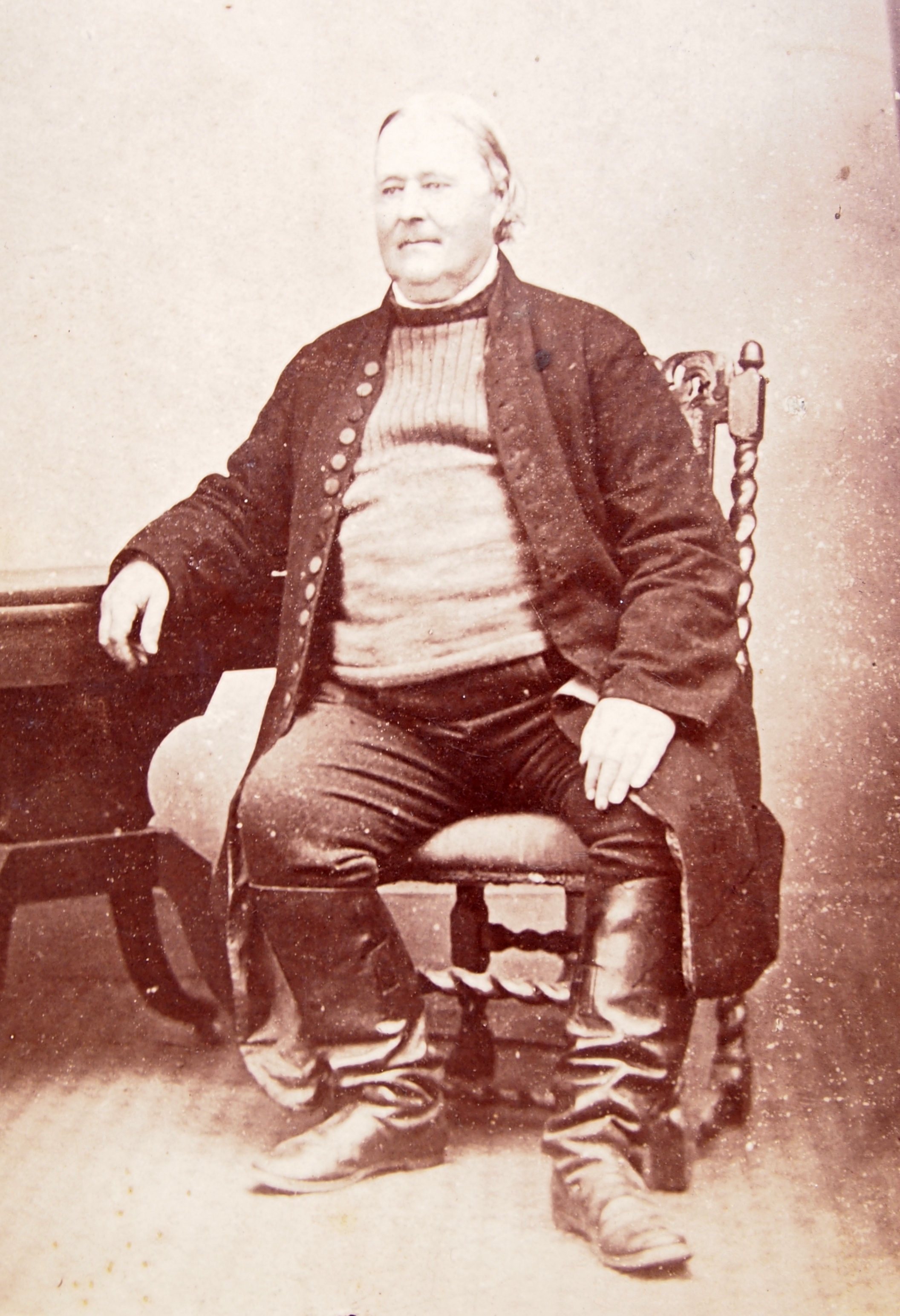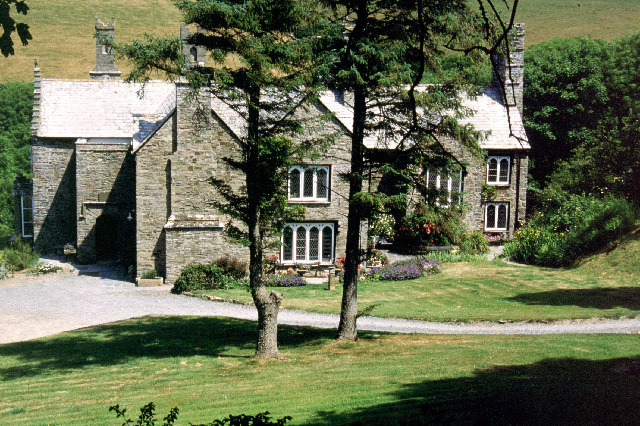Robert Stephen Hawker on:
[Wikipedia]
[Google]
[Amazon]

 Robert Stephen Hawker (1803–1875) was a British
Robert Stephen Hawker (1803–1875) was a British
 The
The
 *1821: ''Tendrils''
*1832: ''Records of the Western Shore'' Oxford
*1840: ''Ecclesia: a volume of poems'' Oxford
*1843: ''Reeds Shaken with the Wind''
*1846: ''Echoes from Old Cornwall''
*1864
*1821: ''Tendrils''
*1832: ''Records of the Western Shore'' Oxford
*1840: ''Ecclesia: a volume of poems'' Oxford
*1843: ''Reeds Shaken with the Wind''
*1846: ''Echoes from Old Cornwall''
*1864
''The Quest of the Sangraal: Chant the First''
Exeter; (part of an unfinished
Robert Stephen Hawker: his life and writings
* * * * * * {{DEFAULTSORT:Hawker, Robert Stephen 1803 births 1875 deaths Writers from Cornwall Poets from Cornwall English antiquarians Anglican poets Clergy from Plymouth, Devon Alumni of Pembroke College, Oxford English Roman Catholics Anglican priest converts to Roman Catholicism 19th-century English Anglican priests People educated at Pate's Grammar School Burials in Devon People educated at Liskeard Grammar School English male poets 19th-century English poets 19th-century English male writers English male non-fiction writers Writers from Plymouth, Devon

Anglican
Anglicanism, also known as Episcopalianism in some countries, is a Western Christianity, Western Christian tradition which developed from the practices, liturgy, and identity of the Church of England following the English Reformation, in the ...
priest, poet, antiquarian
An antiquarian or antiquary () is an aficionado or student of antiquities or things of the past. More specifically, the term is used for those who study history with particular attention to ancient artefacts, archaeological and historic si ...
and reputed eccentric, known to his parishioners as Parson Hawker. He is best known as the writer of " The Song of the Western Men" with its chorus line of "And shall Trelawny die? / Here's twenty thousand Cornish men / will know the reason why!", which he published anonymously in 1825. His name became known after Charles Dickens
Charles John Huffam Dickens (; 7 February 1812 – 9 June 1870) was an English novelist, journalist, short story writer and Social criticism, social critic. He created some of literature's best-known fictional characters, and is regarded by ...
acknowledged his authorship of "The Song of the Western Men" in the serial magazine ''Household Words
''Household Words'' was an English weekly magazine edited by Charles Dickens in the 1850s. It took its name from the line in Shakespeare's '' Henry V'': "Familiar in his mouth as household words."
History
During the planning stages, titles orig ...
''.
Biography
Hawker was born in theclergy house
A clergy house is the residence, or former residence, of one or more priests or ministers of a given religion, serving as both a home and a base for the occupant's ministry. Residences of this type can have a variety of names, such as manse, p ...
of Charles Church, Plymouth, on 3 December 1803. He was the eldest male of nine children and grandson of Robert Hawker, vicar of Charles Church. When he was about ten years old his father, Jacob Stephen Hawker, took Holy Orders and left Plymouth to become curate of Altarnun, leaving him in the care of his grandparents. By this time Hawker was already reading and writing poetry. He was educated at Liskeard Grammar School and Cheltenham Grammar School (now Pate's Grammar School
Pate's Grammar School is a grammar school with academy status in Cheltenham, Gloucestershire, England. It caters for pupils aged 11 to 18. The school was founded with a fund bestowed to Corpus Christi College, Oxford, by Richard Pate in 1574 ...
). As an undergraduate, aged 19, he married Charlotte Eliza I'ans, aged 41. The couple spent their honeymoon at Tintagel in 1823, a place that kindled his lifelong fascination with Arthurian legend
The Matter of Britain (; ; ; ) is the body of medieval literature and legendary material associated with Great Britain and Brittany and the legendary kings and heroes associated with it, particularly King Arthur. The 12th-century writer Geoffr ...
and later inspired him to write ''The Quest of the Sangraal''. This marriage, along with a legacy, helped to finance his studies at Pembroke College, Oxford
Pembroke College, a constituent college of the University of Oxford, is located on Pembroke Square, Oxford. The college was founded in 1624 by King James I of England and VI of Scotland, using in part the endowment of merchant Thomas Tesdale ...
. He graduated in 1827 and won the 1827 Newdigate Prize
Sir Roger Newdigate's Prize, more commonly the Newdigate Prize, is awarded by the University of Oxford for the Best Composition in English verse by an undergraduate student. It was founded in 1806 as a memorial to Sir Roger Newdigate (1719–1 ...
for poetry.
Hawker was ordained in 1831, becoming curate at North Tamerton and then, in 1834, vicar of the church
Church may refer to:
Religion
* Church (building), a place/building for Christian religious activities and praying
* Church (congregation), a local congregation of a Christian denomination
* Church service, a formalized period of Christian comm ...
at Morwenstow
Morwenstow () is a civil parish in north Cornwall, England, United Kingdom. The parish abuts the west coast, about six miles (10 km) north of Bude and within the Cornwall Area of Outstanding Natural Beauty (AONB).
Morwens ...
, where he remained throughout his life. When he arrived at Morwenstow there had not been a vicar
A vicar (; Latin: '' vicarius'') is a representative, deputy or substitute; anyone acting "in the person of" or agent for a superior (compare "vicarious" in the sense of "at second hand"). Linguistically, ''vicar'' is cognate with the English p ...
in residence for over a century. Smugglers
Smuggling is the illegal transportation of objects, substances, information or people, such as out of a house or buildings, into a prison, or across an international border, in violation of applicable laws or other regulations. More broadly, soc ...
and wreckers were apparently numerous in the area. A contemporary report says the Morwenstow wreckers "allowed a fainting brother to perish in the sea ... without extending a hand of safety."
Hawker's first wife, Charlotte, died in 1863 and the following year, aged 60, he married Pauline Kuczynski, aged 20. They had three daughters, Morwenna Pauline Hawker, Rosalind Hawker and Juliot Hawker. Robert Hawker died on 15 August 1875, having become a Roman Catholic on his deathbed. He was buried in Plymouth's Ford Park Cemetery. His funeral was noteworthy because the mourners wore purple instead of the traditional black.
Accomplishments
Shipwrecks
Hawker was regarded as a deeply compassionate person giving Christian burials to shipwrecked seamen washed up on the shores of the parish, and was often the first to reach the cliffs when there was a shipwreck. Formerly, the bodies of shipwrecked sailors were often either buried on the beach where they were found or left in the sea. The figurehead of the ship ''Caledonia'', which foundered in September 1842, marks the grave in Morwenstow churchyard of five of the nine-man crew. Hawker described the wrecking in his book ''Footprints of Former Men in Far Cornwall''. Nearby stands a granite cross marked "Unknown Yet Well Known", close to the graves of 30 or more seafarers, including the captain of the ''Alonzo'', wrecked in 1843. Another notable rescue effort was occasioned by the ''Martha Quayle'' of Liverpool on 4 December 1863. This vessel was seen dismasted off Hennacliff with the crew making the best of their situation; two boats were lowered from the side of which one was driven northward by the heavy seas while the other came ashore unmanned. The first boat was seen by Hawker being rowed by five men but did not make a landing untilClovelly
Clovelly () is a privately owned harbour village in the Torridge District, Torridge district of Devon, England. The settlement and surrounding land belongs to John Rous, who inherited it from his mother in 1983. He belongs to the Hamlyn family ...
. An attempt to launch the Bude lifeboat or bring her along the land failed but by riding along the coast as far as Clovelly Hawker found the mate and four crewmen safe. He failed to persuade the men of Clovelly to launch a skiff but a customs officer from Bideford happened to be there and was able to send a message to the Appledore lifeboatmen to assist if they could. The ''Martha Quayle'' was unlighted by Saturday nightfall. On the Sunday he sent a man towards Clovelly and sometime later that man brought thanks for their deliverance from the captain and crew back to Hawker. A rowing boat crewed by 19 men went north and jointly with the Appledore lifeboatmen who had brought their boat by land got the ''Martha Quayle'' on shore ready to be sold by auction the next day.
Ritual innovation, eccentricity; hut and vicarage
 The
The Harvest Festival
A harvest festival is an annual Festival, celebration that occurs around the time of the main harvest of a given region. Given the differences in climate and crops around the world, harvest festivals can be found at various times at different ...
that we know today was introduced in the parish of Morwenstow in 1843 by Hawker. He invited his parishioners to a Harvest service as he wanted to give thanks to God for providing such plenty. This service took place on 1 October and bread made from the first cut of corn was taken at communion.
"Parson Hawker", as he was known to his parishioners, was something of an eccentric, both in his clothes and his habits. He loved bright colours and it seems the only black things he wore were his socks. He built a small hut, that became known as Hawker's Hut, from driftwood on the cliffs overlooking the Atlantic Ocean. He spent many hours there writing his poems and letters. This driftwood hut is now the smallest property in the National Trust
The National Trust () is a heritage and nature conservation charity and membership organisation in England, Wales and Northern Ireland.
The Trust was founded in 1895 by Octavia Hill, Sir Robert Hunter and Hardwicke Rawnsley to "promote the ...
portfolio. Many of the more fantastic stories told about Hawker are based on an unreliable biography published by the Reverend Sabine Baring-Gould
Sabine Baring-Gould (; 28 January 1834 – 2 January 1924) of Lew Trenchard in Devon, England, was an Anglican priest, hagiographer, antiquarian, novelist, folk song collector and eclectic scholar. His bibliography consists of more than 1,240 pu ...
in 1876, only a few months after Hawker's death. Other eccentricities attributed to him include dressing up as a mermaid
In folklore, a mermaid is an aquatic creature with the head and upper body of a female human and the tail of a fish. Mermaids appear in the folklore of many cultures worldwide, including Europe, Latin America, Asia, and Africa.
Mermaids are ...
and excommunicating
Excommunication is an institutional act of religious censure used to deprive, suspend, or limit membership in a religious community or to restrict certain rights within it, in particular those of being in communion with other members of the con ...
his cat for mousing on Sundays. He dressed in a claret-coloured coat, blue fisherman's jersey, long sea boots, a pink brimless hat and a poncho
A poncho (; ; ; "blanket", "woolen fabric") is a kind of plainly formed, loose outer garment originating in the Americas, traditionally and still usually made of fabric, and designed to keep the body warm. Ponchos have been used by the Indige ...
made from a yellow horse blanket, which he claimed was the ancient habit of St Padarn. He talked to birds, invited his nine cats into the church and kept a pig as a pet.
He built himself a remarkable vicarage, with chimneys modelled on the towers of the churches in his life: Tamerton, where he had been curate; Morwenstow and Welcombe; plus that of Magdalen College, Oxford
Magdalen College ( ) is a Colleges of the University of Oxford, constituent college of the University of Oxford. It was founded in 1458 by Bishop of Winchester William of Waynflete. It is one of the wealthiest Oxford colleges, as of 2022, and ...
. The old kitchen chimney is a replica of Hawker's mother's tomb.
Of his interesting life, Hawker himself wrote: "What a life mine would be if it were all written and published in a book."
The American poet Joyce Kilmer
Alfred Joyce Kilmer (December 6, 1886 – July 30, 1918) was an American people, American writer and poet mainly remembered for a short poem titled "Trees (poem), Trees" (1913), which was published in the collection ''Trees and Other Poems'' in ...
described him as "a coast life-guard in a cassock" and was to some extent influenced by Hawker's poetry.Hillis, John. ''Joyce Kilmer: A Bio-Bibliography''. Master of Science (Library Science) thesis. Catholic University of America, Washington, DC; 1962; p. 19
Works
 *1821: ''Tendrils''
*1832: ''Records of the Western Shore'' Oxford
*1840: ''Ecclesia: a volume of poems'' Oxford
*1843: ''Reeds Shaken with the Wind''
*1846: ''Echoes from Old Cornwall''
*1864
*1821: ''Tendrils''
*1832: ''Records of the Western Shore'' Oxford
*1840: ''Ecclesia: a volume of poems'' Oxford
*1843: ''Reeds Shaken with the Wind''
*1846: ''Echoes from Old Cornwall''
*1864''The Quest of the Sangraal: Chant the First''
Exeter; (part of an unfinished
Arthurian
According to legends, King Arthur (; ; ; ) was a king of Britain. He is a folk hero and a central figure in the medieval literary tradition known as the Matter of Britain.
In Welsh sources, Arthur is portrayed as a leader of the post-Ro ...
poem)
*1869: ''The Cornish Ballads and Other Poems'', (new ed., with an introduction by C. E. Byles, 1908)
*1870: ''Footprints of Former Men in Cornwall'' (a collection of papers)
*1975: ''Selected Poems: Robert Stephen Hawker''. Ed. Cecil Woolf
Bibliography
*''The Poetical Works of Robert Stephen Hawker'' (1879); now first collected and arranged by J. G. Godwin; ncludes ''Notice'', pp. vii–xviii London: C. Kegan Paul *''The Life and Letters of R. S. Hawker (sometime Vicar of Morwenstow)'' (1906) by C. E. Byles. London: Bodley Head *''"Passon" Hawker of Morwenstow'' ( 959; H. R. Smallcombe. Plymouth: he author*''The Wreck at Sharpnose Point'' (2003) by Jeremy Seal, Picador. *''Hawker of Morwenstow'' (2002) by Piers Brendon, Random House. *''The Land Near the Dark Cornish Sea'' (2004) by A. Hale, ''Journal for the Academic Study of Magic'', Issue 2, Pages 206–225 *”Reverend Hawker of Morwenstow" by3 Daft Monkeys
3 Daft Monkeys are a world music-influenced acoustic band from Cornwall, UK, consisting of Tim Ashton, Athene Roberts, Rich Mulryne, and Jamie Graham. The instrumentation consists of vocals, fiddle, twelve-string guitar, bass guitar and percuss ...
. From the album "of stones and bones"
References
Bibliography
* *Woolf, Cecil (1965)."Hawker of Morwenstow, 1803-1875." ''The Book Collector
''The Book Collector'' is a London-based journal that deals with all aspects of the book.
It is published quarterly and exists in both paper and digital form. It prints independent opinions on subjects ranging from typography to national heritag ...
'' 14 no 1 (spring): 62–71; 14 no 2 (summer): 202–211.
External links
Robert Stephen Hawker: his life and writings
* * * * * * {{DEFAULTSORT:Hawker, Robert Stephen 1803 births 1875 deaths Writers from Cornwall Poets from Cornwall English antiquarians Anglican poets Clergy from Plymouth, Devon Alumni of Pembroke College, Oxford English Roman Catholics Anglican priest converts to Roman Catholicism 19th-century English Anglican priests People educated at Pate's Grammar School Burials in Devon People educated at Liskeard Grammar School English male poets 19th-century English poets 19th-century English male writers English male non-fiction writers Writers from Plymouth, Devon